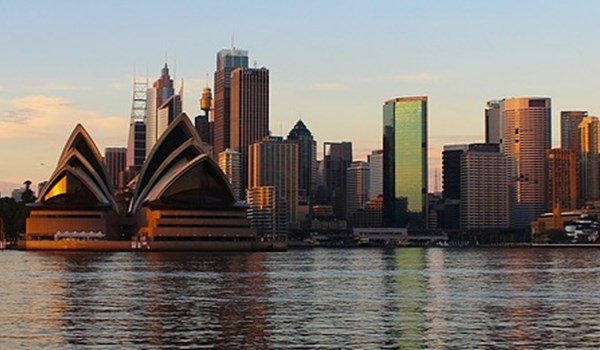Jurisdictions
Regions
Industry Sectors
20/10/21
AUSTRALIA: NSW government fund investing hundreds of millions in tax havens and authoritarian countries, according to allocations.

As published on theguardian.com, Wednesday 20 October, 2021.
A controversial New South Wales government investment fund has hundreds of millions of dollars placed in countries ranging from Angola and Russia to the Cayman Islands tax haven, according to allocations made public for the first time.
The disclosures, obtained by the Labor shadow treasurer, Daniel Mookhey, reveal that the NSW Generations Fund has 12% of its $15bn-plus investments in so-called emerging markets.
The state’s new treasurer, Matt Kean, responded to questions from Guardian Australia saying he would a commission a review of the government’s managed funds to ensure they were “consistent with [environmental, social and governance] principles and in ways that build a better future”.
Set up in 2018 with $10bn in seed capital by Kean’s predecessor and now premier, Dominic Perrottet, the Generations Fund was intended to be used to repay state debt. However, with the budget now deep in debt and likely to remain so for years, the fund – earmarked to expand to $90bn by 2031 – will effectively rely on borrowing to expand.
Mookhey said it was illegal for superannuation fund managers to use debt to increase investments because it magnified risk. Likewise, the government should also be wary of hitching the budget’s fortunes to similar endeavours.
“Mr Perrottet is racking up even more debt and lending it to Vladimir Putin’s Russia, instead of using it to build schools and hospitals in places like Parramatta and Penrith,” Mookhey said, referring to suburbs of Sydney.
“Mr Perrottet might think the Cayman Islands is a premier investment destination, but NSW taxpayers would be loathe to take on that risk.”
As the Guardian reported on Wednesday, NSW’s ballooning debt is on track to reach $171bn by 2025. Concerns about the state’s finances, including how it was planning to run the Generations Fund, worried investors earlier this year.
For about three months, bondholders were demanding a higher repayment rate, or yield, on debt issued by the NSW government compared with other major Australian states. The additional cost was unusual for a state that considers itself the powerhouse of the national economy, accounting for about one-third of its GDP.
Bond analysts such as Martin Foo, an associate director at ratings agency S&P, said the distribution of investments in places such as the Cayman Islands and Saudi Arabia was not in itself a concern.
“It is common for asset managers to benchmark their investment returns against a third-party index like the Morgan Stanley Capital International [gauge],” Foo said.
Moreover, the fact the fund is set up for long-run returns means it would hold little cash and instead have greater exposure to riskier “growth” assets than other vehicles such as the NSW Infrastructure Future Fund.
“History suggests growth assets can deliver better returns in the long run but be more volatile in the short run,” Foo said. “Ups and downs in financial markets might therefore affect NSW’s balance sheet in a pro-cyclical way”, referring to the prospect of amplifying the investment’s rise or fall.
The Generations Fund has an objective to make returns of at least 4.5% over the inflation rate, giving its managers at the government’s TCorp a licence to be active if not aggressive investors.
Observers such as the independent economist Saul Eslake say the fund is a surprising venture.
“It’s almost as if the NSW government is running a hedge fund,” Eslake said.
“Provided interest rates don’t go up very much, and all the things that they had bought with the borrowed money don’t go down very much, then it will be brilliant. But there’s obviously some risk that it will appear incredibly dumb.”
Kean, who has only been treasurer for a couple of weeks, said he intended to review the Generations Fund to ensure it met the government’s principles.
“Private investments in environmental, social and governance [ESG]-aligned businesses are booming and can be a good source of returns. The NSW government should be a leader in this space,” Kean said.
“NSW taxpayers should not be financing activities that worsen the challenges faced by our society – we should be investing in solving them.
“This is why I intend to commission a review of NSW government-managed funds to ensure that we are investing public money consistently with ESG principles and in ways that build a better future.”
Any further investments into the Generations Fund would be made in the context of the upcoming half-yearly review.



